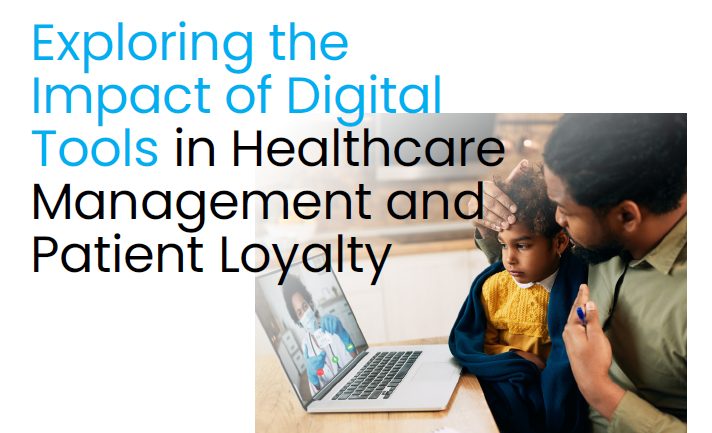According to a new survey from digital consultancy Mobiquity there is a significant divide between how patients across different age groups leverage technology to monitor and manage their health. The Healthcare Management and Patient Loyalty Report provides insights into how digital health platforms impact patients’ engagement, trust and loyalty
It comes as no surprise that the majority of patients have increased usage of telemedicine options in the last year, but 80% of older patients (56+) still prefer more face-to-face interaction with providers. On the other hand, 54% of those 25-40 would like to continue using telemedicine as much as possible even as in-person restrictions continue to be lifted.
Beyond aiding with communication, technology use plays a significant role in patient loyalty. If a healthcare provider offered telemedicine options, over half of respondents aged 18-40 would be more likely to keep annual visits and seek preventive care versus 29% of patients 56+. On top of that, 50% of patients 25-40 stated that once they have gone through the process of setting up their provider’s mobile app, they are less likely to switch compared to only 29% of those 56 and older. Additionally, 44% of those aged 25-40 would switch doctors to get a better digital experience while only 12% of those 56+ would do the same.
Even with this generational divide, there are a few universal findings:
- Of those surveyed, 95% indicated that it is important that their healthcare provider makes it easy for them to ask questions and get responses from a physician or nurse.
- If the overall experience is easier, 78% of patients are more likely to seek medical treatment.
- Only 67% expressed satisfaction with telehealth, indicating there is plenty of room for improvement.
“In the last 18 months, healthcare professionals had to rapidly transform their digital offerings to provide care to patients while also ensuring both parties’ health and safety,” said Teun Schutte, managing consultant at Mobiquity. “Across all industries, we’ve found that these digital habits are not going away. When it comes to healthcare and life sciences, our report confirmed that catering to these new tech-focused preferences is necessary to build strong and trusted relationships with patients. By providing a variety of care options to all generations, providers can use these digital tools to optimize care and build long-standing relationships with patients.”
Additional findings from the Healthcare Management and Patient Loyalty Report include:
- Data security is a top concern – 64% of patients would be more likely to use a digital health tool or platform if I had confidence that it kept my data secure.
- Communication is key to building trust – 75% of patients believe that the better their healthcare providers are at staying in touch with them, the more trust patients have in doctors’ management of their health.
- Younger generations are more interested in tech-managed health options – 68% of those 18-40 would consider utilizing a digital tool (such as a mobile app, smart watch, or voice-prompted assistant) to manage their health compared to 37% of those aged 56 and older.
- When managing health conditions with digital tools, there is room for improvement – When it comes to managing and monitoring a health condition only 52% of patients were satisfied with hands-free devices or voice assistants like Alexa, 64% were satisfied with mobile apps and 70% were satisfied with smart watches.
The full Healthcare Management and Patient Loyalty Report is available at https://www.mobiquity.com/digital-tools-in-healthcare-loyalty-research





